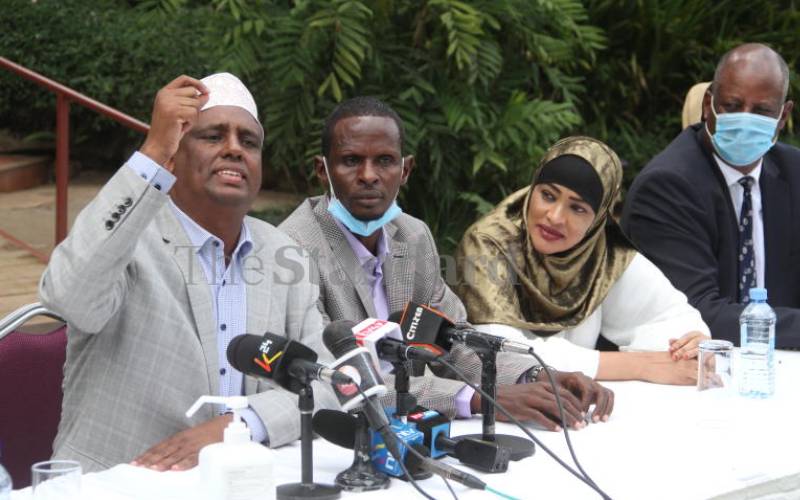×
The Standard e-Paper
Kenya’s Boldest Voice

Marsabit Governor Mohamud Ali address the press at Serena Hotel in Nairobi, January 18, 2021. Left, Qalicha Gufu Wario and Isiolo Woman Representative Rehema Jaldesa. [Edward Kiplimo, Standard]
Leaders from Marsabit County have developed a road map and implementation plan for lasting peace in the region.